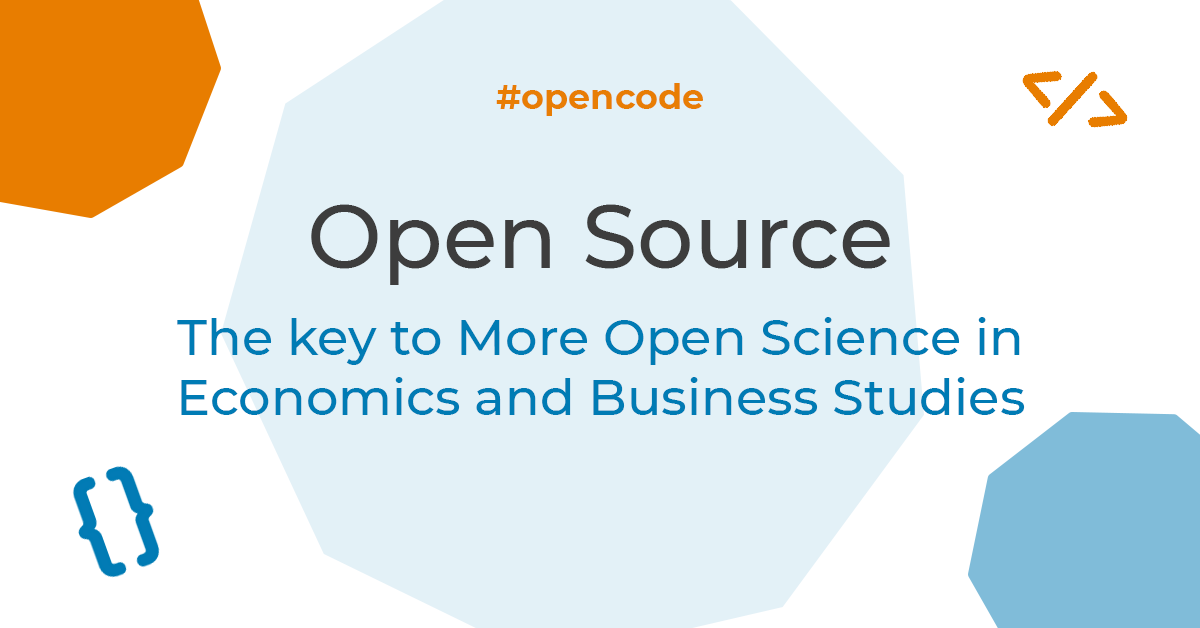Open Source software plays an important role in research. However, there is still room for improvement in its use in economics and business studies, as Prof. Dr Hans-Martin von Gaudecker noted during a Coffee Lecture on Open Science Education. In his presentation, he outlined practical approaches and initiatives for promoting Open Source in economics and business studies.
At the end of June, the fourth edition of the "Coffee Lecture on Open Science Education" series took place. The guest speaker was Prof. Dr Hans-Martin von Gaudecker, Professor of Applied Microeconomics at the University of Bonn and an active member of the Open Source Economics platform. His lecture, entitled "Open Source Software and Open Science: A Productive Pair," focused on the role and potential of open technologies in economics.
Open Source crucial for reproducibility
Open Source and Open Science are based on a common philosophy, as von Gaudecker explained: transparency, collaboration and accessibility, with reproducibility as the key link. This openness is particularly crucial in empirical research. Researchers can only verify research results independently when they have access to the software used and its source code. For this reason empirical research should be based entirely on Open Source components, for instance open programming languages and freely available tools, according to von Gaudecker.
Open Source not widely used in economics
Von Gaudecker suspects that insufficient training in programming and software skills during university studies in economics is the reason for the dominance of proprietary programmes such as STATA or Matlab. In addition, once someone has worked with a particular (proprietary) software such as STATA or Matlab, they often stick with it. Switching to open programming languages is time-consuming and hardly realistic at advanced career stages.
However, von Gaudecker also sees positive developments, such as research journals introducing new guidelines requiring the disclosure of data and code, partly in response to previous reproducibility scandals. In addition, funding institutions such as the German Research Foundation (DFG) are now increasingly insisting on Open Science principles.
Bringing Open Source to economics
To promote Open Source in economics, von Gaudecker has been involved in the development of open teaching formats and software tools for many years. These include the course "Effective Programming Practices for Economists", which is aimed at master's and doctoral students. The aim is to teach scientifically sound, reproducible programming with a focus on code structuring, versioning (for instance with Git), testing and debugging, among other things. A new course, "Applied Data Analytics" has been introduced for bachelor's students, which combines basic data analysis with economic issues in Jupyter Notebooks.
In addition to teaching, von Gaudecker is also involved in the development of specific tools that facilitate reproducible work in research. These include project templates, which can be used to standardise and transparently structure Python-based research projects. These templates integrate the workflow manager pytask, which makes it possible to map and automate even complex data analyses as structured processes in the form of a directed graph.
Open source must be anchored in education
Von Gaudecker is heavily involved in the Open Source Economics platform, which is also responsible for the work mentioned above. It is worth taking a look at the website, for example at the numerous Open Source models for various economic fields of application.
In conclusion, von Gaudecker stated that the considerable effort involved in dealing with Open Source and open programming languages had been worthwhile. Open, modular and well-documented software not only makes one's own research more efficient, but also creates the basis for genuine collaboration. However, change is only possible if the teaching of programming skills begins in education.
Would you like to know more about Open Source or Open Code in economics and business studies? The Open Economics Guide provides an introduction and numerous in-depth entries with background information.
